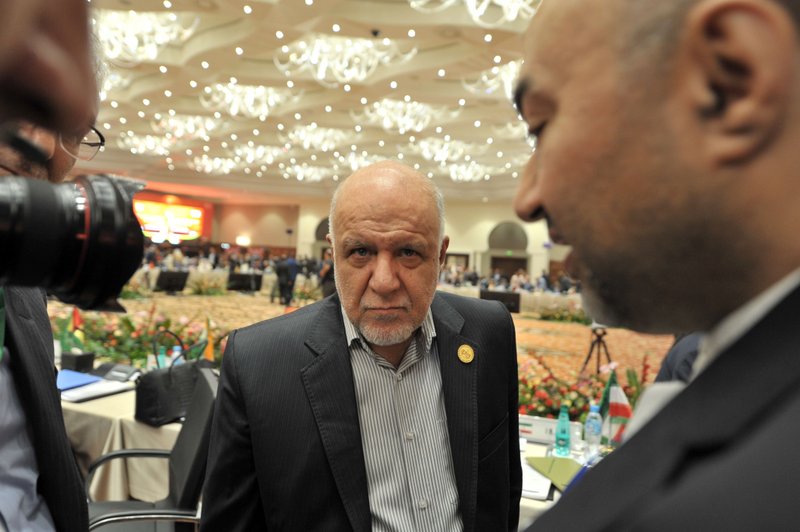ALGIERS, Algeria -- OPEC nations on Wednesday reached a preliminary agreement to curb oil production for the first time since the global financial crisis eight years ago, immediately pushing up oil prices.
Mohammed Bin Saleh Al-Sada, Qatar's energy minister and current president of OPEC, announced the deal after several hours of talks Wednesday in the Algerian capital.
The preliminary deal will limit output from the Organization of the Petroleum Exporting Countries to 32.5 million barrels per day, he said. Current output is estimated at 33.2 million barrels per day.
Production curbs still must be finalized at an OPEC meeting in Vienna in November.
Disagreements between regional rivals Saudi Arabia and Iran had dimmed hopes for a deal.
The oil cartel's officials met informally on the sidelines of an energy conference to try to find common ground on how to support oil markets.
Benchmark U.S. crude jumped $2.38, or 5.3 percent, to $47.05 a barrel in New York. Brent crude, the international standard, was up $2.72, or 5.9 percent, to $48.69 a barrel in London.
Iran would not have the same proportional reductions as other countries under the pre-accord, but would limit future production to 3.7 million barrels a day, according to an adviser to Algeria's energy minister. It is currently estimated to be pumping around 3.6 million barrels a day.
Algerian officials shuttled through the night between delegations to try to secure agreement.
Earlier, Iranian Petroleum Minister Bijan Namdar Zanganeh played down the OPEC gathering, calling it "just a consultation meeting. ... If there is a decision, it should be taken at the next meeting in Vienna in November."
The price of crude oil has fallen sharply since mid-2014, when it was over $100 a barrel, dropping below $30 at the start of this year.
Saudi Arabia, the world's biggest oil producer and Iran's rival for power in the Middle East, appears to be more amenable to some sort of production limit, certainly more so than in April when OPEC failed to agree on measures to curb supplies, analysts said.
Saudi Energy Minister Khalid Al-Falih has this week promised to "support any decision aimed at stabilizing the market."
Over the past couple of years, OPEC countries, led by Saudi Arabia, had been willing to let the oil price drop as a means of driving some U.S. shale oil and gas producers out of business. Shale oil and gas require a higher price to break even.
Those lower prices have hurt many oil-producing nations hard, particularly OPEC members Venezuela and Nigeria, but also Russia and Brazil.
The deal will reverberate beyond OPEC. It will brighten the prospects for the energy industry, from Exxon Mobil Corp. to small U.S. shale firms, and help the economies of oil-rich countries such as Russia and Saudi Arabia. For consumers, however, it will mean higher prices at the pump.
"The cut is clearly bullish," said Mike Wittner, head of oil-market research at Societe Generale SA in New York. "What's much more important is that the Saudis appear to be returning to a period of market management."
The agreement also signals a new phase in relations between Saudi Arabia and Iran, which have clashed on oil policy since 2014 and are backing opposite sides in civil wars in Syria and Yemen. The deal indicates that the Saudi leadership and Iranian government, with the mediation of Russia, Algeria and Qatar, were able to overcome the differences that sank another proposal to cap production earlier this year.
Ian Taylor, the head of Vitol Group BV, the world's largest oil-trading house, said the crude market could remain oversupplied until 2018 unless producing countries stop flooding the market.
"I cannot see a good reason for a major increase in the price of oil" since the market remains "way oversupplied," Taylor told a Bloomberg conference in London.
Information for this article was contributed by Aomar Ouali of The Associated Press and by Nayla Razzouk, Grant Smith and Angelina Rascouet of Bloomberg News.
Business on 09/29/2016
